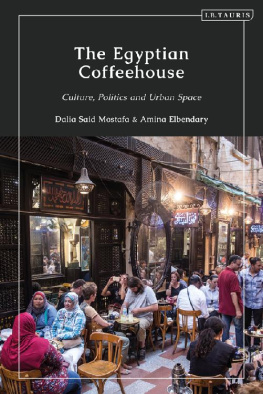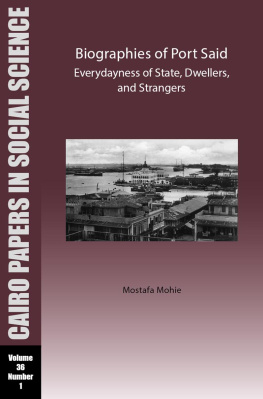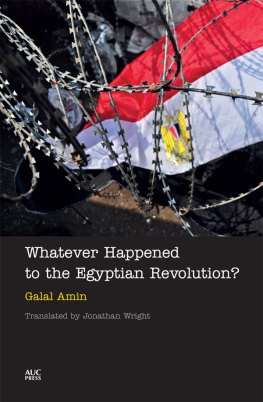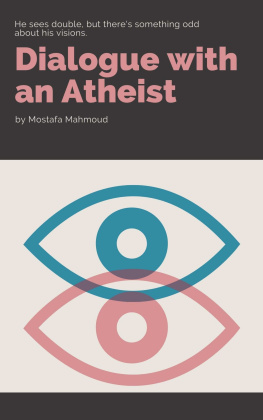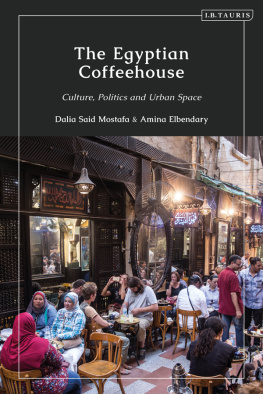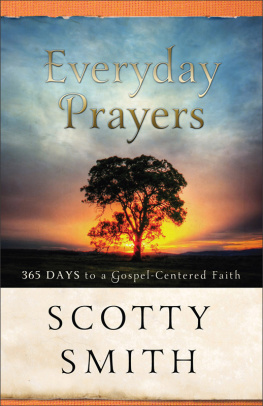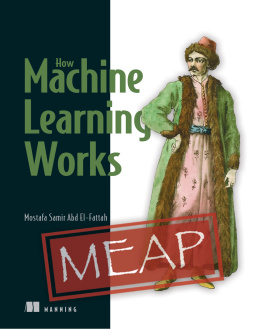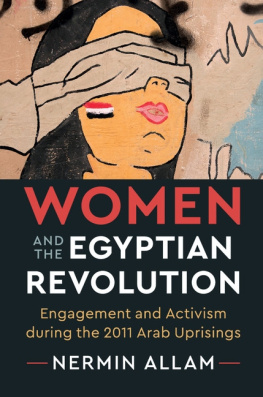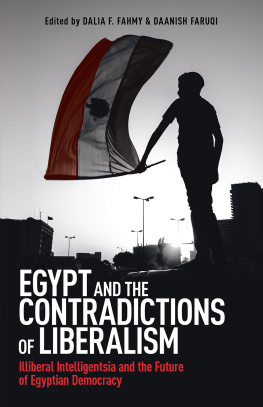Women, Culture, and the January
2011 Egyptian Revolution
This book comes at a time when the Egyptian nation is facing deep divisions about the notion and definition of revolution. The articles here aim to look at the 2011 Egyptian Revolution and the central role of women within it from a critical perspective. Our objective is not to glorify the revolution or inflate the role of Egyptian women within its parameters, but to analyse and critique both the achievements and setbacks of this revolution and the contributions of various strata of women to the revolutionary process, which is still unfolding. Womens participation is part of a broader picture and needs to be considered as an essential element of the ongoing struggle for freedom and social justice, not in isolation of it. The reader will soon realise that the authors in this book, perhaps, agree on one profound aspect of the 2011 revolution: the struggle is ongoing, and the revolutionary process is still being shaped and recreated. The story of the Egyptian Revolution still resists any kind of closure despite the ascendance of the military regime once again to power. The years to come will no doubt witness an expansion of the political and cultural archive of the Egyptian and Arab uprisings, accompanied by much academic work on their impact and significance. Womens roles and contributions need to occupy a central position in these academic analyses.
This book was originally published as a special issue of the Journal for Cultural Research.
Dalia Said Mostafa is a Lecturer in Arabic and Comparative Literature at the University of Manchester, UK. Her forthcoming book is entitled The Egyptian Military in Popular Culture: Context and Critique. She has published studies in both Arabic and English on contemporary Arabic fiction, Arab cinema, and popular culture in Egypt.
Women, Culture, and the January 2011 Egyptian Revolution
Edited by
Dalia Said Mostafa
First published 2017
by Routledge
2 Park Square, Milton Park, Abingdon, Oxon, OX14 4RN, UK
and by Routledge
711 Third Avenue, New York, NY 10017, USA
Routledge is an imprint of the Taylor & Francis Group, an informa business
2017 Taylor & Francis
All rights reserved. No part of this book may be reprinted or reproduced or utilised in any form or by any electronic, mechanical, or other means, now known or hereafter invented, including photocopying and recording, or in any information storage or retrieval system, without permission in writing from the publishers.
Trademark notice: Product or corporate names may be trademarks or registered trademarks, and are used only for identification and explanation without intent to infringe.
British Library Cataloguing in Publication Data
A catalogue record for this book is available from the British Library
ISBN 13: 978-1-138-66873-7
Typeset in Times New Roman
by RefineCatch Limited, Bungay, Suffolk
Publishers Note
The publisher accepts responsibility for any inconsistencies that may have arisen during the conversion of this book from journal articles to book chapters, namely the possible inclusion of journal terminology.
Disclaimer
Every effort has been made to contact copyright holders for their permission to reprint material in this book. The publishers would be grateful to hear from any copyright holder who is not here acknowledged and will undertake to rectify any errors or omissions in future editions of this book.
Contents
Dalia Said Mostafa
Ziad Elmarsafy
Caroline Rooney
Hala Kamal
Fakhri Haghani
Nadia A. Shalaby
Ahmed Kadry
Sherine Fouad Mazloum
Roger Bromley
The chapters in this book were originally published in the Journal for Cultural Research, volume 19, issue 2 (June 2015). When citing this material, please use the original page numbering for each article, as follows:
Introduction
Egyptian women, revolution, and protest culture
Dalia Said Mostafa
Journal for Cultural Research, volume 19, issue 2 (June 2015), pp. 118129
Chapter 1
Action, imagination, institution, natality, revolution
Ziad Elmarsafy
Journal for Cultural Research, volume 19, issue 2 (June 2015), pp. 130138
Chapter 2
Egypts revolution, our revolution: revolutionary women and the transnational avant-garde
Caroline Rooney
Journal for Cultural Research, volume 19, issue 2 (June 2015), pp. 139149
Chapter 3
Inserting womens rights in the Egyptian constitution: personal reflections
Hala Kamal
Journal for Cultural Research, volume 19, issue 2 (June 2015), pp. 150161
Chapter 4
Egyptian women, revolution and the making of a visual public sphere
Fakhri Haghani
Journal for Cultural Research, volume 19, issue 2 (June 2015), pp. 162175
Chapter 5
A multimodal analysis of selected Cairokee songs of the Egyptian revolution and their representation of women
Nadia A. Shalaby
Journal for Cultural Research, volume 19, issue 2 (June 2015), pp. 176198
Chapter 6
Gender and Tahrir Square: contesting the state and imagining a new nation
Ahmed Kadry
Journal for Cultural Research, volume 19, issue 2 (June 2015), pp. 199206
Chapter 7
To write/to revolt: Egyptian women novelists writing the revolution
Sherine Fouad Mazloum
Journal for Cultural Research, volume 19, issue 2 (June 2015), pp. 207220
Chapter 8
Giving memory a future: women, writing, revolution
Roger Bromley
Journal for Cultural Research, volume 19, issue 2 (June 2015), pp. 221232
For any permission-related enquiries please visit: http://www.tandfonline.com/page/help/permissions
Roger Bromley is a visiting professor at Lancaster University, UK, Emeritus Professor in Cultural Studies and Honorary Professor of Sociology at the University of Nottingham, UK, and Associate Fellow at Rhodes University, South Africa. He worked for 44 years in a range of UK Higher Education institutions, as well as lecturing in more than 20 countries overseas. He is the author of Lost Narratives: Popular Fictions and Politics (1988); Narratives for a New Belonging: Diasporic Cultural Fictions (2000); From Alice to Buena Vista: The Cinema of Wim Wenders (2001); and four other books. As well as publishing articles on conflict, post-conflict, and reconciliation (Rwanda, Bosnia, South Africa, and Palestine), his research interests also include migration, diaspora, and cinematic representations of refugees and asylum seekers. His current project is Giving Memory a Future: Narratives of Conflict, Displacement and Reconciliation.
Ziad Elmarsafy is Professor and Head of the Department of Comparative Literature, Kings College London, UK. He is the author of Sufism in the Contemporary Arabic Novel (2012), and the co-editor, with Anna Bernard and Stuart Murray, of What Postcolonial Theory Doesnt Say (Routledge, 2015).
Fakhri Haghani teaches Comparative Studies of Culture and History in Iran and the Middle East at the Center for Middle Eastern Studies, Rutgers University, USA. She has numerous publications exploring the intersections of gender, sexuality and womens rights movements, politics of visual culture, popular culture, political arts, and social and intellectual history as multi-faceted manifestations of the contested identities in Iran and other societies of the Middle East. Her research interests combine interdisciplinary, transnational, and comparative theoretical approaches including, womens and gender studies, media and performance studies, and cultural studies. She has also served as a co-chair and a co-founding member of Human Rights Atlanta, an activist branch of the Centre for Human Rights Education in Atlanta.



